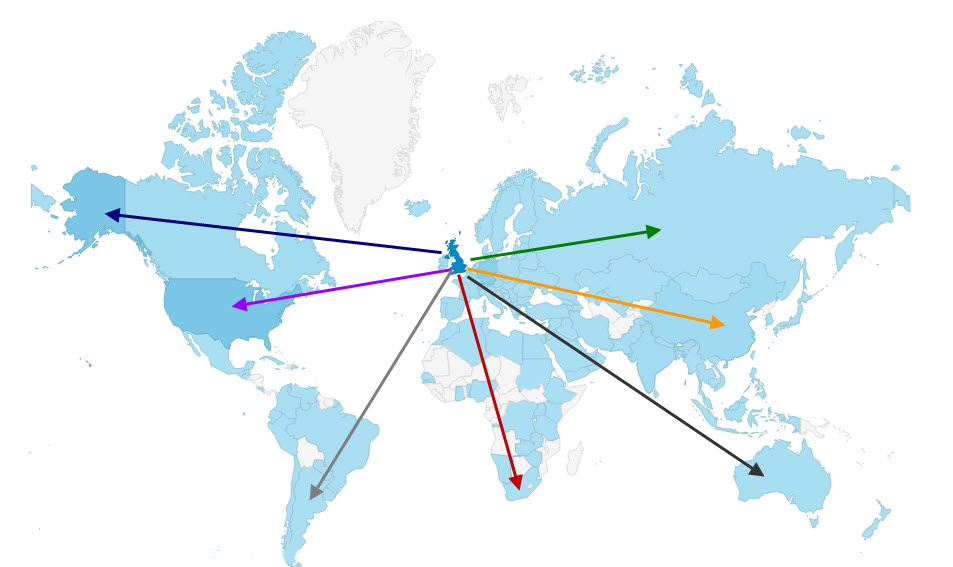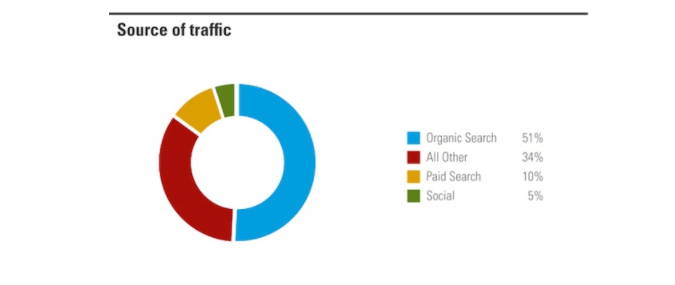Building Your Business’s Global Footprint – International SEO Analyzed
If you want to achieve international success with your online presence, you will need much more than basic SEO. Making meaningful connections and successfully adapt local-level insights to make your mark is what you will need.

International SEO (Search Engine Optimization) still to this day is one of the most successful ways of establishing your brand in the international market when it comes to your digital side of things. Although the task of performing international SEO is a hard nut to crack but businesses or SEO experts who successfully dig out the right blend of best global practices and local-level insights are usually the ones that succeed on the much wider larger platform.
Your international SEO strategy should be shaped by new global trends including mobile-first approach but you must make sure to have these infused with each territory’s distinct usage trends in order for them to be on top of what they are meant to achieve. SEO can yield highly profitable results if a business can include local insights and mend their approach to the linguistic, technical, cultural and social shades that each new territory will undeniably bring. SEO to this day being one of the most prominent online business strategies will only continue to grow with more and more people being diverted towards the internet for all things. Considering that fact that only 4 billion people in the world are internet users that is about 53% of the total potential, the foreseeable rise in internet population is like a writing on the walls. Regions like Europe have about 80% internet penetration while the Asia-Pacific region is much lower at around 50% and Africa is even lower at a meager 34%.
The ever rising internet population goes up by hundreds of millions of people every year in today’s world and is expected to get an even faster growth. People browse online on many search engines and connect with trillions of URLs (Universal Resource Locators) on the web and according to a trusted study conducted by BrightEdge, a total of no less than 51% of total search traffic comes from organic searches, further cementing the position of SEO in international market. 92% searches worldwide are attributed to Google but in markets like China, Korea and Russia, Google faces serious competition from local search engines hence solidifying the fact that Google cannot be thought as the only source of internet around the world.

You will always encounter problems as soon as you attribute Google to be the only internet searches provider in your international SEO campaign. It can also be said that International SEO is much more difficult to master than initially thought.
New Trends in Technology
Personalization of search results and the rise of quick answers are only two of many new trends incorporated by technology and are always affecting (for better or worse) the already done work in international SEO. The biggest one to date has to be the shift to mobile-first programing bringing complexity with it along with the opportunity to integrate an ecosystem of apps with the core search products. Things become even more fragmented once you combine the requirements for customized approaches for each different market when you dig deeper in international SEO. Everything and anything including user experience (UX) to link earning and keyword usage will need to adapt to each different market if you want to make the most of International SEO.
The Ever Growing Consumer Expectations
Everyday regular consumers especially in internet heavy regions of the world tend to go on their devices browsing for anything they want to know, buy or do through search engines and they expect steady text updates from major brands they always buy from or look at for information with SEO playing an essential role in this multichannel mix. This gets affected a lot by the local trends in each market as well and might seem non-achievable when you consider a cohesive global strategy and a fragmented or unclear local reality but fortunately, that is not the case at all.
It is the duty of any international marketer to take a wide angle perspective for all the markets they are trying to excel in when it comes to International SEO and also pinpoint the specific trends within individual markets responding to them just in the way a local marketer would in any particular market. International SEO has to be based on growing trends and must evolve with each market.
Exceptions Such As, Baidu
We now have flexible frameworks that can be applied to each different market and when you take the example of a vital international market like China, it is easy to observe that Baidu is the most popular search engine in the region dominating market share when it comes to online searches with a staggering and somewhat surprising 75%. This clear win for Baidu has been challenged recently however from promising platforms and the introduction of new ways for people to discover useful content through mobile apps.

This implicates the fact that you or your international SEO team will need to understand exactly how this search engine prioritizes results for specific search queries, however, only this will not be sufficient as well. You will also need a detailed analysis of how the general population in China uses technology due to the fact that mobile usage is expanding rapidly in the region as well. A 12% lift in mobile years for a year-on-year basis is reported however, the overall mobile users in the region has risen by a much more significant 30% compared to that in the yesteryear.

Important apps like WeChat have provided a huge medium for people to find content in China and you must be totally sure that your content can surface right through that medium as well in order for it to be seen significantly. Many brands through their intensive research have come to the conclusion that a fresh approach to user experience in China is required because of the cultural differences and their impact on the way people do basic things like operating the internet.
Bigger cleverer international brands have tailored their websites for the US and China versions for example in order for their websites to become user friendly for the local region. You might find a high quality image of a popular food item in a US based big company site and an image of various tourist spots in China for the Chinese version.
What “Translation” Can Mean
This should be an easy one as only using a translation tool is just not going to be enough when it comes to International SEO for your website and all the different content on it. Starting off, you have to deal with the possibility of the Translation not being accurate and whether or not it will account for important vulgarisms, then having found the correct translation for a phrase will not directly mean that it will the most search for phrase in that particular local market and lastly just because you website is ranking well for a query in one country, there is no guarantee it will do the same through proxy in another location at all. It is a bare necessity to have your content localized based on search trends in the local market and also consumer insights if you want to rank for the right queries and aim to convert visitors to consumers or customers once they eventually make it to your website.
Consider these following tips to over your translation challenge:
- Go through a reliable and detailed keyword research with local demand and not just with your initial list of keywords you used in some different country.
- Be sure to communicate with local native language speakers of the particular language who can provide precious qualitative feedback on your keyword list.
- Do a thorough research in the competitive landscape identifying categories you can make a significant impact in.
- Work towards applying a consistent concrete methodology across all your targeted countries and develop smart content that takes you past all the clutter.
- Be sure to account for new advanced trends including voice search by digging in deep on how people use search and then mend your content to take great advantage.
The Evolving Nature of User Search
Things are changing everywhere and search engines including the searches in them are no different. A richer more visual platform is taking over for brands to engage their target audiences, driven by machine learning with the aim to deliver accurate more precise results. This is visible in universal searches not just ones based to a specific plane of field, personalization and quick answers have become much more popular as ways of searching evolve as well. This provides the opportunity for brands and online sellers to connect with users in a much deeper quicker way and at the same time more attention is required to make the most of this in international markets.
Some more tips below can help you connect with your audiences:
- To identify trends that shape search results in each country, use an enterprise SEO and content platform.
- Through text, image based content or video, use this research to pinpoint any possibilities to rank at first priority.
- Make sure to identify search trends across all different devices making sure your content is optimized for the right kind of targeted user.
- Even if Google dominates one particular market, being a marketer, you should be able to adapt your strategies to fit any unusual local discrepancies in search results.
Conclusion
When implemented right, International SEO goes much farther than core SEO metrics marketers have traditionally monitored making it much more than just technical SEO basics and translation. International SEO can help brands build a global footprint and provide much great exposure than local ever can expanding target audience on a much exponential scale.
All new markets connect to new opportunities and strategies but usually the most successful ones are those that are efficient with their global teams and target a much wider field of view rather than limiting just to one particular market.
 :
:  :
:  :
:  :
:  :
: 





 ! +92-333-6553048
! +92-333-6553048
 USA
USA UK
UK CA
CA UAE
UAE

Nice information ..